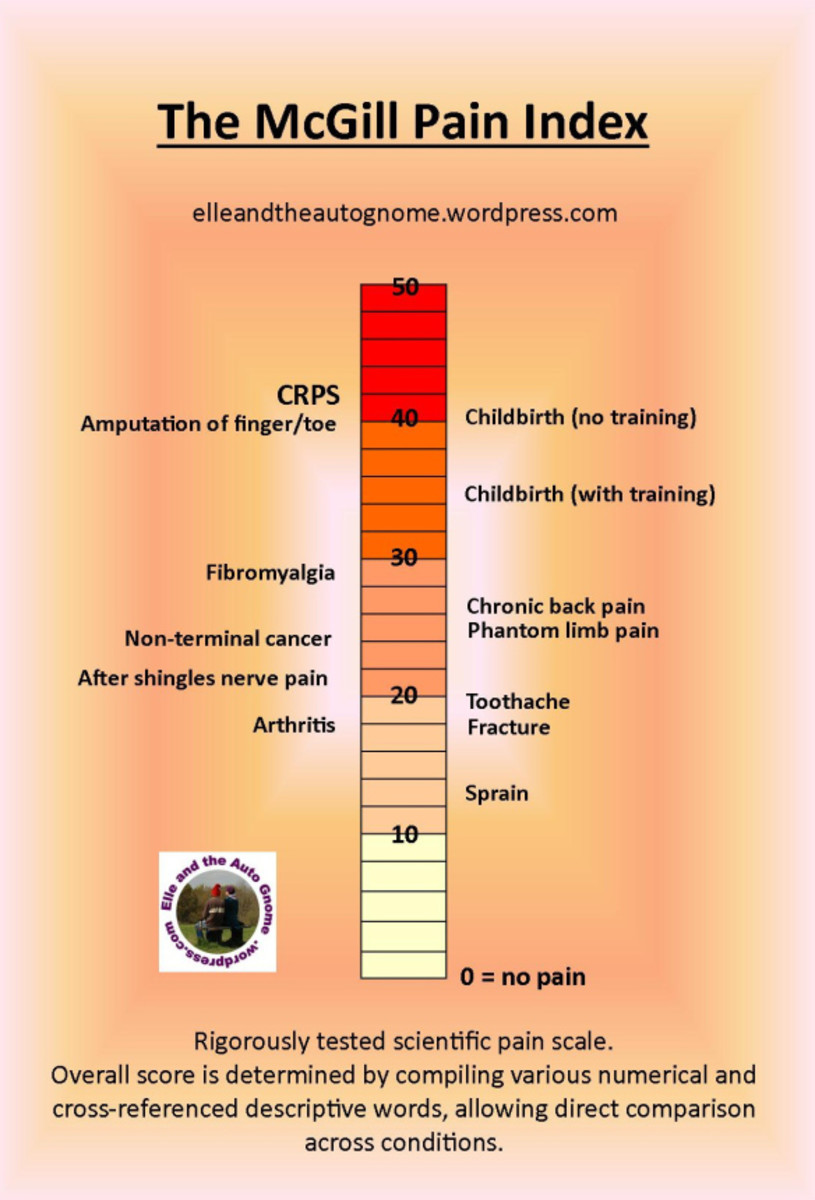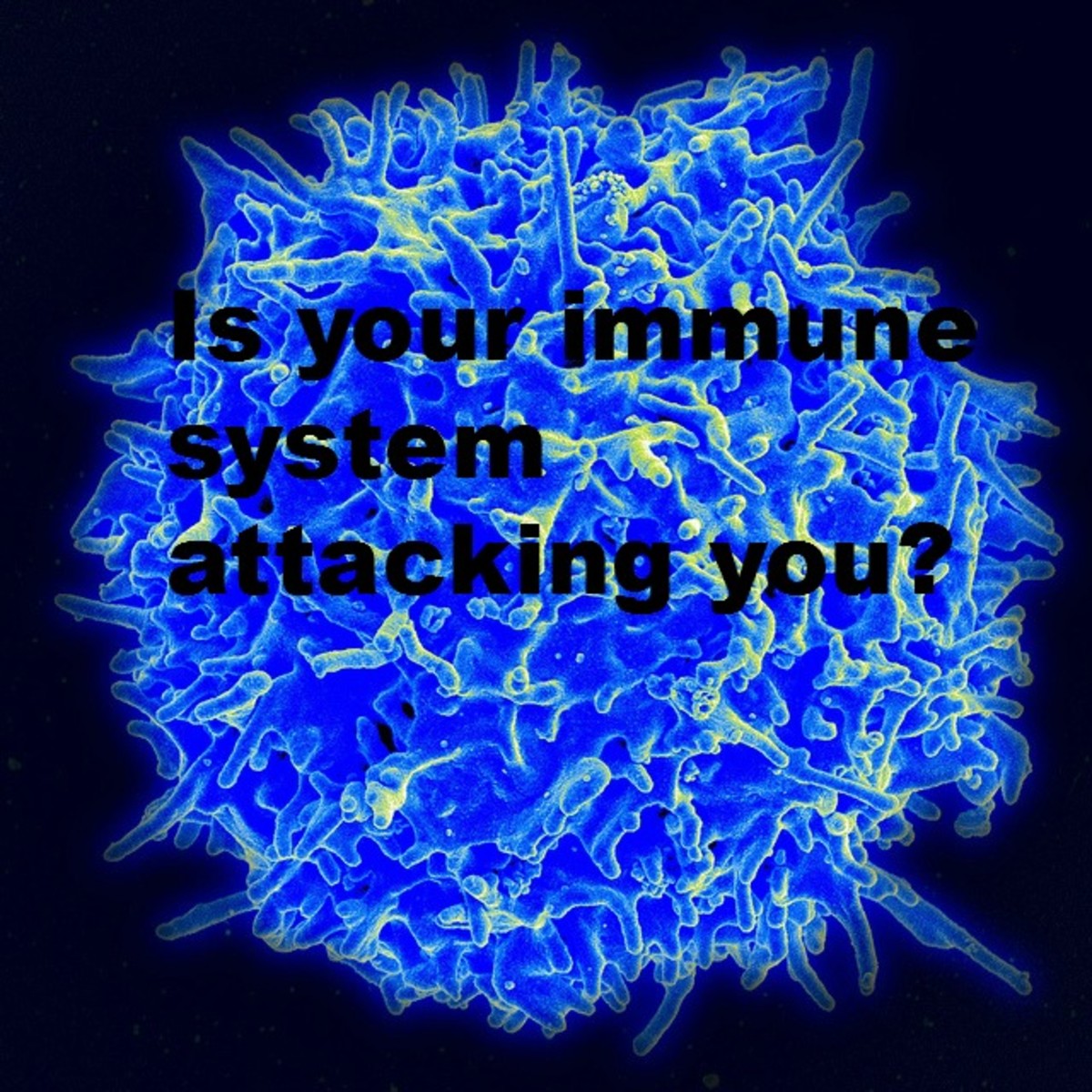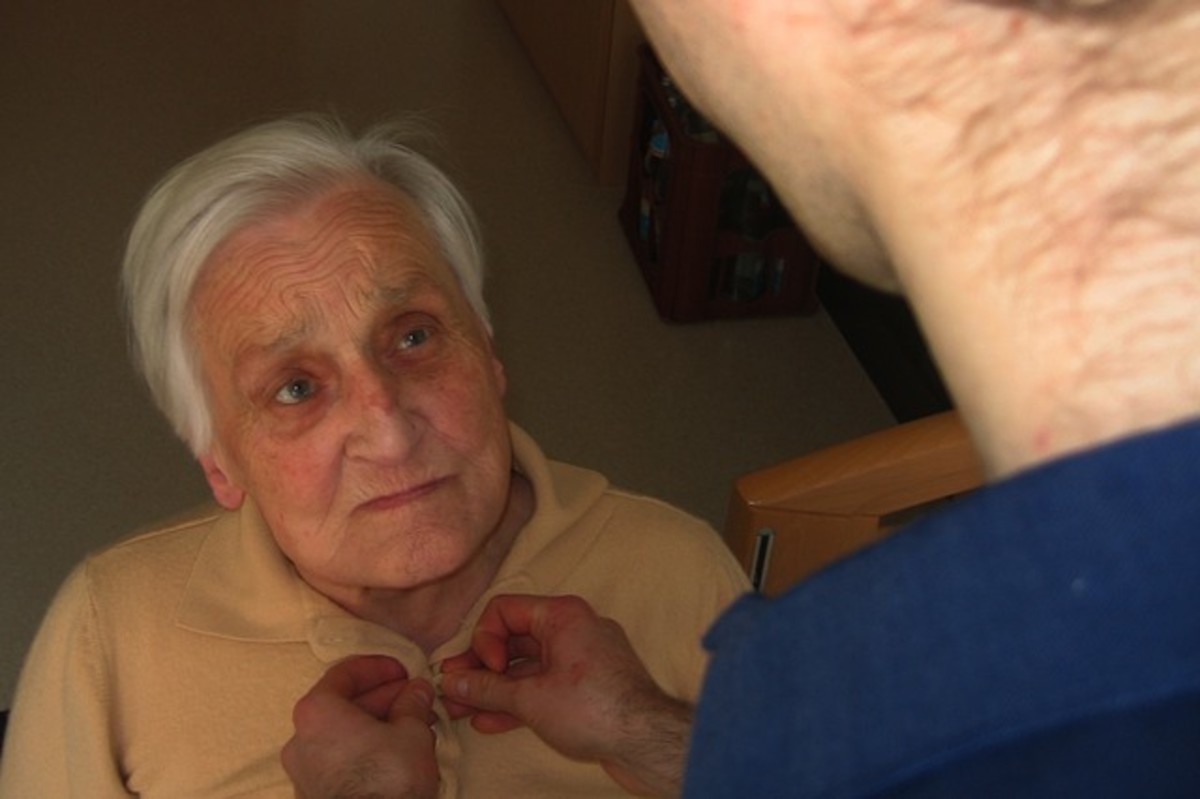Alzheimers Disease - Keeping the Memories Alive

Alzheimers - The Diagnosis
Alzheimers is the most common form of dementia and it causes problems with memory, thinking, and behavior. It is a progressive disease of the brain that can affect every aspect of daily living.
In order to understand the impact of Alzheimer's, one only has to look at the latest statistics from the Alzheimers Foundation.
- 5.4 million Americans are living with Alzheimers
- One in eight older Americans has Alzheimers
- Alzheimers is the 6th leading cause of death
- More than 15 million Americans are providing unpaid care for someone with Alzheimers
If that doesn't concern you, it should.
Alzheimers disease - two words that no family wants to hear. It begins with subtle hints but most of us will suspect it long before seeking an official diagnosis. We notice the change, a slight problem with short term memory or, maybe an increase in things misplaced. For a while we make excuses like - "it's just age" or "everyone does it when they get old". So when do you pursue a medical diagnosis? Immediately!
Why get an official diagnosis if there is no cure?
Because...there are treatments that can slow the progression of Alzheimers and that will make life a lot easier for your family for a while. Currently, there are several FDA approved pharmaceutical drugs with proven success. The most widely prescribed are Aricept® (for early stage Alzheimers) and Namenda® (for moderate stage Alzheimers) because of their limited side effects. There are other drugs available but they generally produce more severe side effects.
Approved treatments take time for adequate research but the primary obstacle is the lack of volunteers for clinical trials. Drugs cannot be approved until the have been adequately tested in a substantial population. If your loved one has recently been diagnosed, ask about clinical trials. Clinical trials are the pathway to finding a cure!
Okay, we have a diagnosis, now what?
In my opinion, the most important next step is to have a conversation with yourself and make a personal commitment to doing all you can to help your loved one maintain their dignity. It will be a tall task but we're going to talk about ways to make it easier.
- Be patient and kind! In the early stage of Alzheimers the biggest problem may be short term memory loss. Your loved one may forget appointments, repeat themselves more often, or lose focus when performing a task. Don't condemn or insult them! It is not their fault. They may be aware of what is happening but there is nothing they can do to change it. So, they repeat themselves a lot. Just listen and reply as if you've never heard it before. If you berate them, they may become less communicative or suffer diminished self esteem. That will happen soon enough. Don't rush it. Be patient and kind!
- Don't try to force memory! Recognize that Alzheimers is affecting you too. Conversations with your loved one have become more difficult because of their memory loss. It is natural for you to try and test their memory from time to time, if only to reassure yourself that they aren't getting worse. Don't do it! Don't ask questions like "Do you remember...?" The odds are, if they remembered, you would already know it. Tests such as "do you remember" questions will only make your loved one more self-conscious of their memory loss and again, diminish their self esteem. Don't try to force memory!
- Just provide the missing piece! As Alzheimers progresses, your loved one may start having difficulty finding appropriate words or completing sentences. The connection between thought and speech is being disrupted by Alzheimers. It's frustrating, for sure and it sure makes conversation more difficult but again...it's a disease, not a choice. When your loved one struggles to find the word, just provide it and let them move on. You do not need to tell them that they can't complete a sentence anymore. To do so is cruel and will only fast-forward the loss of self esteem. Accept that this is your role now, to fill in the pieces that get lost in the fog. Just provide the missing piece!
- Need them! When Alzheimers is in the moderate stage, your loved one may lose their ability to remember the tasks that once were second nature. They will no longer initiate actions that were once part of their day to day routine. It is your job to keep them actively involved in living. Everyone wants to be needed and you can help your loved one continue to feel useful, loved, and needed. Find simple tasks that they can still perform and ask them to help you. It may be something as simple as stirring a pot of soup on the stove, or emptying a trash can. Ask them for help and thank them when they finish. Need them!
- Reinforce old memories! Many who have Alzheimers seem to get stuck in the past. Their short term memory has vanished but memories of childhood, early jobs, or old neighborhoods remain strong. They find joy and comfort in that place of old memories and it is important to help them keep those memories alive. Make a photo album of those they've loved and label each photo in large text with the names and dates. It's not only a wonderful gift but will provide hours of comfort as your loved one spends time with the memories. While they're lost in the photos, it will also give you time for "you", which will become precious as Alzheimers consumes your life. Reinforce old memories!
- Entertain them! You just heard that time for yourself will be limited so how can you get a little more? Provide some entertainment for your loved one. Keep in mind that their attention span has probably diminished to the point where television programs no longer hold their interest. It's very important to find things for them to do that don't require a commitment for long periods of time. Jigsaw puzzles and crossword or word search puzzles can be a life saver. Set up a table in a well lit area in the center of activity of your living space and throw out a puzzle. You can keep an eye on your loved one while they entertain themselves for a bit. Keep the hands busy and the brain gets a rest. Entertain them!
- Keep them safe! A serious consequence of Alzheimers is that your loved one may lose their ability to exercise good judgment. It is a heavy burden for the family but I cannot stress this enough. There will be times when your loved one is going to get angry or hurt because you stop them from doing something they are no longer capable of doing and, that presents a hazard to them or others. Bear the brunt of their anger with tolerance, knowing you are doing the right thing. It may be driving or using a chainsaw or cooking on a gas stove. Watch for signs of dangerous behavior and be strong enough to circumvent. Parents often tell their children "no" to protect them. It doesn't feel good and children get mad but it is a necessary part of parenting. Whatever your relationship is to your loved one with Alzheimers, you are now the parent and it is your job to keep them safe!
What is the most important thing you can do?
That's an easy question. The one thing that no one should lose to Alzheimers is their dignity. No matter how irritating or child-like they have become, they are still deserving of being treated with respect, kindness, and dignity.
For the care giver, the most important thing you can do is take time for yourself and if that means asking for help - do it. Living within the shadow of Alzheimers is hard. It is painful. It is frustrating and sad and draining. No one can do it alone. Taking a little time for yourself will provide the fuel you need to get through another day. Get help with housekeeping if you need it or ask someone to stay with your loved one so you can get away for a trip to the grocery or even for a visit with a friend.
Most of all, cherish the good days and tolerate the bad. There are no easy fixes when you are living with Alzheimer's but you can make sure that your loved one has the highest quality of life possible and that you don't live with regret.
Other Hubs Well Worth Your Time !
- How to make a Memory Book for Dementia and Alzheimer's Patients
It's been proven that people with severe memory loss, dementia or Alzheimer's will function better if they are reminded of their lives and those of their loved ones. So how do you help YOUR mother remember her life? This page will help you make her m - Coloring for Adults ~ Activities for Alzheimer's ~ Coloring Pages for Adults
Coloring is an excellent activity for children of all ages. It can be a good activity for someone with Alzheimer's as long as a few things are taken into consideration.








